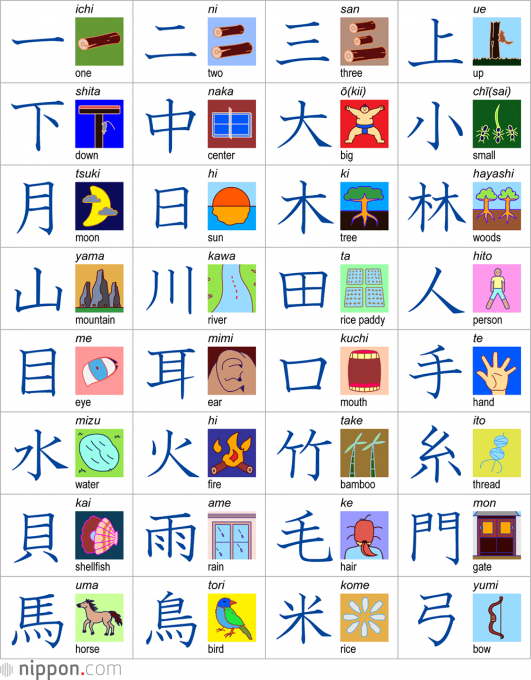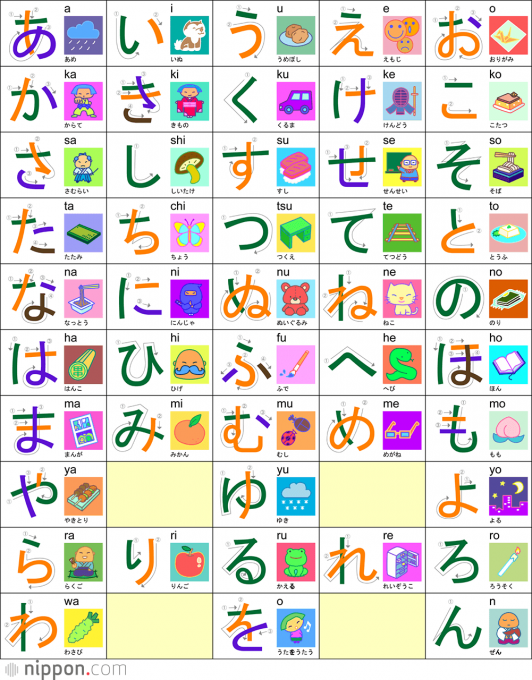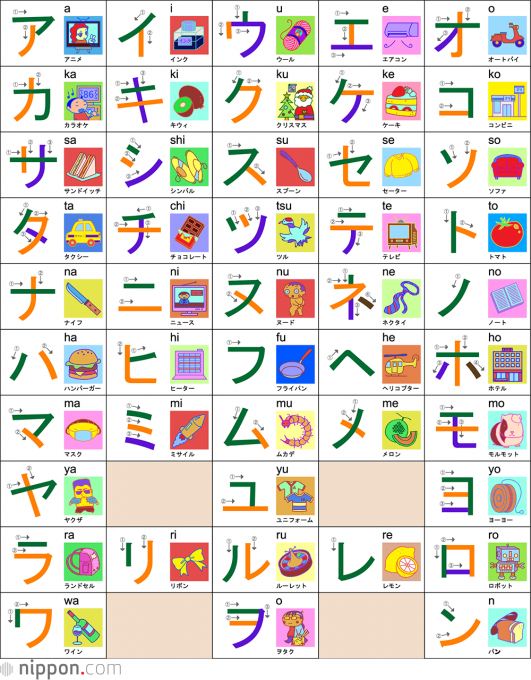
Japanese is the official language of Japan, spoken by about 128 million people mainly in that country. This enigmatic language has captured the hearts and curiosity of many persons who want to learn it for many reasons. Some of them to read books and travel, many more to watch anime without subtitles and some others to seek academic and professional opportunities in Japan. Whatever the reason, all the learners of this language have to begin by learning about its three writing systems: hiragana, katakana and kanji.
The first and oldest writing system is Kanji. It consists of ideograms which
means symbols that represent ideas. They can represent one or several
different ideas. The origin of the Kanjis is actually Chinese, as for many
years japanese did not have a writing of its own. The first Kanji were
introduced in Japan betwen the 1st and 3rd century and have evolved to the
Kanji used nowadays. No one knows how many Kanji are there, however japanese
people learn around 2136 that are used daily.
Don't panic! They learn throughout their life and you can do so
too. Remember: 七転び八起き If you fall seven
times, you get up eight.

Hiragana is a syllabary with 46 characters. Each one represent a short sound. They have many uses, mainly to help with grammatical elements of the japanese language, such as particles and tenses. Kanji alone cannot do that. An additional nowadays use is called furigana , that show how a kanji is pronounced. This helps plenty consiering that some Kanji have several meanings.

Let us talk about Katakana now. It is the other japanese syllabary, that contains 46 characteres for phonetic uses as well. They are used for foreign words such as foreign names, names of countries or cities outside Japan.

Learning a new language can be very fun. Here is a list of useful links that will help you begin your learning journey.